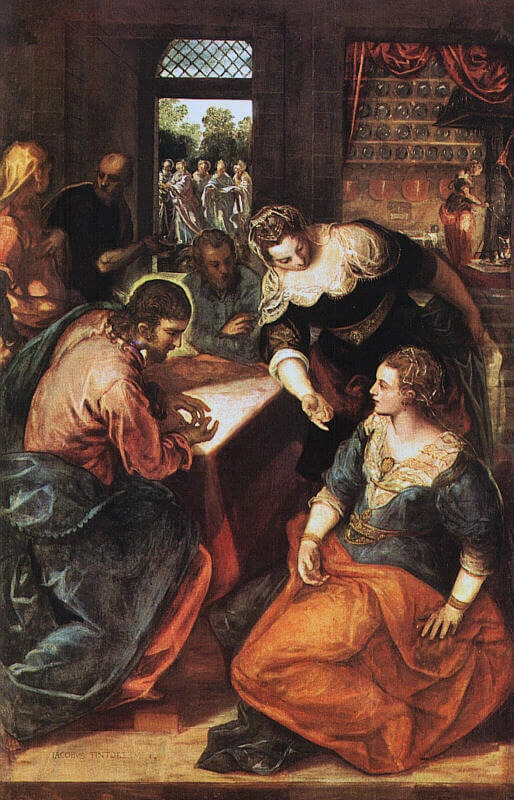3927. 'And Rachel said, With the wrestlings of God I have wrestled with my sister, and I have prevailed' in the highest sense means [the Lord's] own power, in the internal sense temptation in which a person overcomes, in the external sense resistance offered by the natural man. This is clear from the meaning of 'the wrestlings of God' and of 'wrestling' as temptations, since temptations are nothing else than the wrestlings of the internal man with the external, or of the spiritual man with the natural, for each desires to have dominion over the other. And when there is any to-do about that dominion, conflict takes place, which in this case is portrayed as 'wrestling'. As regards 'prevailing' meaning overcoming, this is clear without explanation.
[2] The reason these words in the highest sense mean His own power is that when in the world He was in the [infirm] Human the Lord suffered all temptations by His own power and overcame them by His own power, unlike any human being who never endures any spiritual temptation by his own power and overcomes in it; only the Lord residing with him does so. But see what has been stated and shown already concerning these matters:
The Lord suffered the severest temptations, much severer than those suffered by others, 1663, 1668, 1690, 1737, 1787, 1789, 1812, 1813, 1815, 1820, 2776, 2786, 2795, 2813, 2816, 3318.
The Lord fought and overcame by His own power, 1616, 1692, 1813, 3381.
And the Lord alone fights in man's conflicts, 1692.
[3] As regards 'the wrestlings of God' and 'prevailing' meaning, in the internal sense, temptations in which a person overcomes, this is clear from what has been stated immediately above. But the reason why in the external sense resistance from the natural man is meant is that no temptation is anything else. For as has been stated, in spiritual temptations there is a to-do over who is to have dominion, that is to say, who is going to have the power. Is the internal man to have it or the external - or what amounts to the same, the spiritual man or the natural? For they stand opposed to each other, 3913. Indeed when a person undergoes temptations his internal or spiritual man is governed by the Lord through angels, but his external or natural man by spirits from hell. And the conflict that takes place between these is experienced by that person as temptation. When a person both in faith and in life is such that he is able to be regenerated he overcomes in temptations, but when he is such that he is not able to be regenerated he goes under in temptations. The resistance offered by the natural man is meant by Rachel's statement that she had wrestled with her sister, for Leah, to whom 'sister' refers here, means the external man's affection, but 'Rachel' the internal man's, 3793, 3819.







